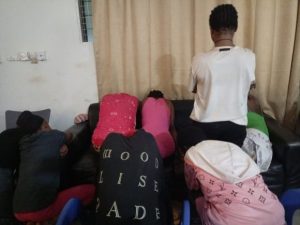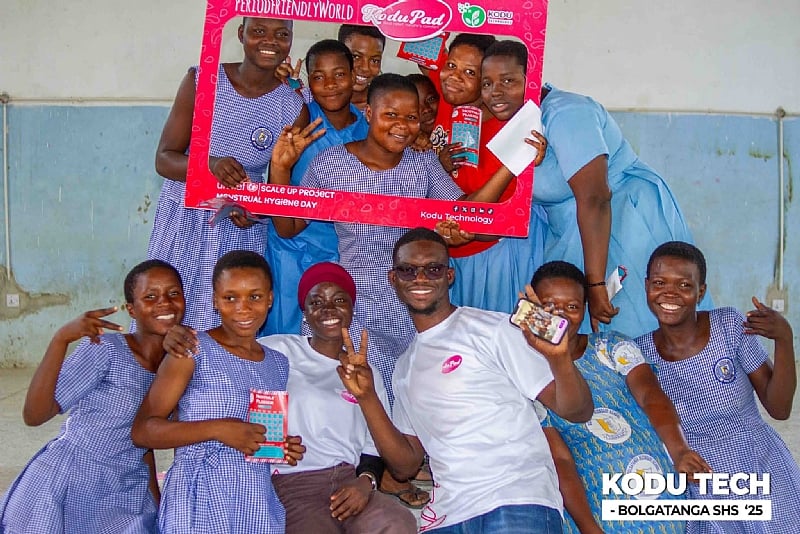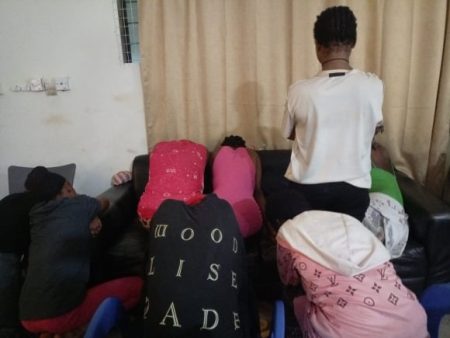Period poverty, the lack of access to menstrual hygiene products and facilities, poses a significant barrier to education and overall well-being for girls, particularly in developing countries. In Ghana’s northern regions, this challenge is especially pronounced, impacting school attendance, performance, and self-esteem. Recognizing this critical need, Kodu Technology, a social enterprise based in Tamale, and UNICEF Ghana have partnered to implement an innovative solution: Menstrual Pad Banks. These banks provide easy and discreet access to sanitary pads, using a simple metallic token system, thus removing the financial burden and stigma often associated with menstruation. This initiative represents a significant stride towards promoting menstrual hygiene management and ensuring that girls can fully participate in their education.
The Menstrual Pad Banks are compact, wall-mounted units designed for user-friendliness and privacy. Unlike traditional vending machines, they operate mechanically, eliminating the need for cash transactions. Students simply insert a metallic token into the designated slot and receive a sanitary pad. This ingenious system bypasses the financial constraints that often prevent girls from acquiring these essential products. Moreover, it fosters a sense of dignity and discretion, allowing girls to manage their periods without embarrassment or fear of stigma. The token-based mechanism also encourages responsible use and prevents potential misuse or wastage.
Kodu Technology, the driving force behind this innovative solution, is more than just a provider of menstrual hygiene products. It’s a social enterprise committed to empowering rural girls and promoting sustainable agricultural practices. The company manufactures its eco-friendly sanitary pads from banana and plantain stems, thereby reducing reliance on conventional materials and contributing to environmental sustainability. This approach not only tackles the issue of period poverty but also supports local farmers and promotes sustainable economic development. By sourcing local materials, Kodu Technology creates a circular economy that benefits both the environment and the community.
The partnership between Kodu Technology and UNICEF Ghana’s StartUp Lab has been instrumental in scaling up the rollout of these Menstrual Pad Banks across northern Ghana. The StartUp Lab program, which supports innovative and sustainable solutions to social challenges, has provided Kodu Technology with the resources and guidance needed to expand its reach and impact. This collaborative effort demonstrates the power of partnerships in addressing complex societal issues. The successful deployments of these pad banks at Tamale Senior High School and Business Senior High School paved the way for the recent inauguration of a Menstrual Pad Bank at Bolgatanga Senior High School in the Upper East Region, further extending the program’s positive impact.
The inauguration of the Menstrual Pad Bank at Bolgatanga Senior High School was met with overwhelming gratitude from both students and staff. They recognized the profound impact this initiative will have on girls’ education and well-being. By providing accessible and affordable sanitary pads, the program alleviates a significant burden on students and their families. It also creates a more supportive and inclusive learning environment, enabling girls to focus on their studies without the distraction and discomfort of managing their periods without adequate resources. The positive response from the school community underscores the importance of such interventions in addressing the often-overlooked issue of period poverty.
Kodu Technology and UNICEF Ghana are committed to expanding the reach of this life-changing initiative. They are actively seeking support from development partners, NGOs, and corporate organizations to deploy more Menstrual Pad Banks across the five northern regions of Ghana. Their goal is to ensure that every girl has access to the essential resources she needs to manage her period with dignity and confidence. This continued effort highlights the importance of collaborative action in addressing period poverty and promoting gender equality. The installation of these pad banks is not just about providing sanitary pads; it’s about empowering girls, breaking down stigma, and creating a more equitable future for all.














